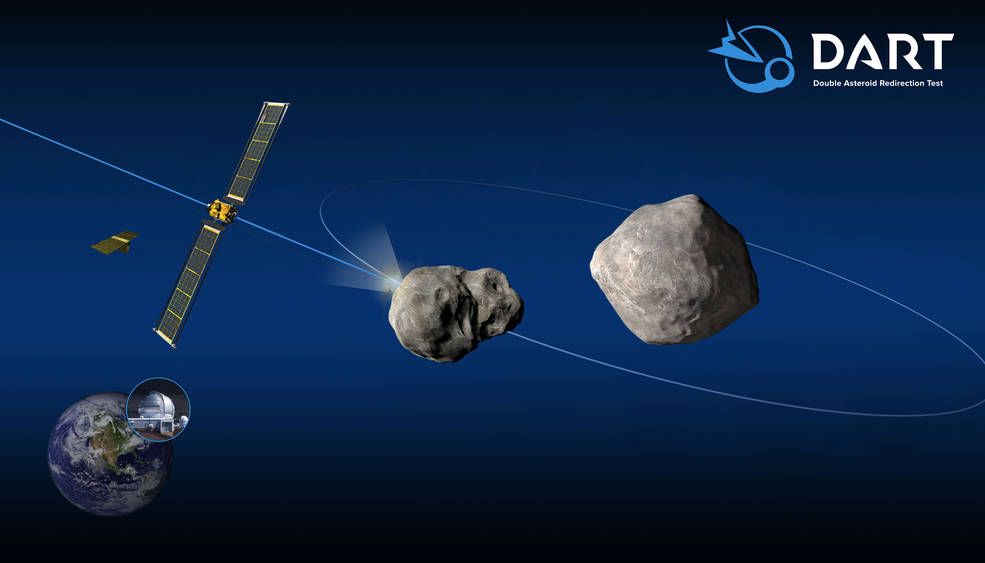
☄ NASA to test asteroid deflection tech
Asteroids are a threat to life on earth. NASA has been developing measures to save Earth from Armageddon. This month they'll launch a spacecraft to put their theories and technology to the test.
Share this story!
In 90's disaster movies Armageddon and Deep Impact, asteroids threaten to wipe out all life on Earth. The ill-prepared governments of the Earth hastily prepare missions with nail-bitingly low odds of success.
And while those movies were just competing summer blockbusters with little regard for realism, the basic premise isn't too far-fetched. Asteroids are a threat against life on Earth, and for the time being, there are no means for humanity to protect itself against such a scenario.

But that's slowly starting to change. On November 23, NASA will launch the DART spacecraft aboard a SpaceX Falcon 9 rocket. The mission is going to be a demonstration and evaluation of the kinetic impactor technique.
The DART mission
DART is an acronym for Double Asteroid Redirection Test, and the method consists of crashing the 500kg spacecraft into the asteroid at a velocity of 24'000km/h (15'000 mph). Rather than destroying the asteroid as was done in the movies, the intention here is to merely nudge it into an alternate trajectory.
The asteroid in question is known as Dimorphos, has a diameter of 160 meters, and orbits a larger asteroid known as Didymos. It's been selected because it'll be possible to observe the event from earth-based telescopes and planetary radar. Beyond said telescopes, DART will eject a smaller satellite ten days before impact. This satellite, made by the Italian Space Agency, is equipped with cameras.
The impact is projected to happen between September 26 and October 1 of 2022, and will help scientists understand how much momentum is needed to deflect an asteroid if the Earth would ever come under threat in the future. And at least for now, any potential threat seems distant.
Of the 27'000 near-earth asteroids that NASA has under supervision, the biggest danger is posed by an asteroid known as Bennu. It's predicted to pass Earth in 2135 at a distance comparable to half of that between the Earth and the moon. Even then, the likelihood of impact is considered low.
By becoming a premium supporter, you help in the creation and sharing of fact-based optimistic news all over the world.


